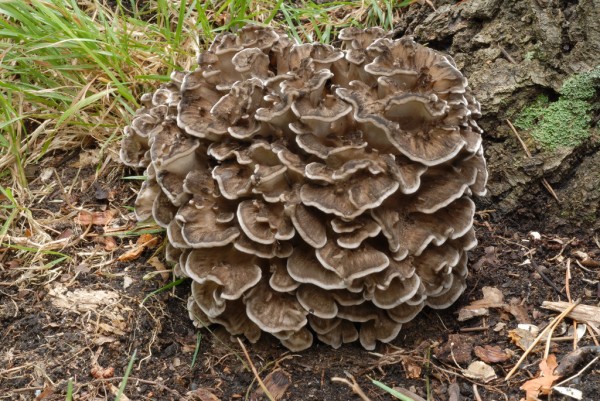Could magical mushrooms contain the cure for depression?
02/04/2017 / By Tracey Watson

Mental health issues, and depression in particular, have risen to alarming proportions in recent years. The CDC reports that at any given time, 7.6 percent of people in the U.S. over the age of 12 are afflicted with this condition.
As the CDC further notes, depression is associated with an increased risk of death from suicide and other causes; absenteeism and lower workplace productivity, leading to lower income and higher unemployment; and high-risk behaviors like substance abuse and smoking.
Clearly, this is a serious issue which has a detrimental effect on the lives of many.
Fortunately, there is new hope for those afflicted with this devastating condition. Chinese medicine has long utilized mushrooms in the treatment of a variety of ailments, and Western medicine is finally catching on.
A new study, by researchers out of Yunnan University in China, and published in the journal, Pharmaceutical Biology, has found that the mushroom Griflola frondosa (GF), also known as hen-of-the-woods, shows great promise in the treatment of depression.
It has long been recognized that mushrooms contain antioxidant, anti-inflammatory and antimicrobial properties not found in other plants. They are also known to improve immune function, decrease blood glucose, and improve spleen, stomach and nerve function. However, these little fungi hold other secrets too. (RELATED: Visit Remedies.news for more coverage of natural remedies.)
For their study, researchers wanted to examine the antidepressant effects of the GF mushroom and the role of AMPA in those effects. AMPA are receptors which are typically decreased in the brains of patients with depression.
As part of the experiment, mice were fed either the GF mushroom or another mushroom, Pleurotus ostreatus, for either one or five days, and were divided into three different groups: those who were given low doses of GF-containing foods; those who received a medium dose of such foods; and a final group that was given high doses of GF.
One control group of mice was injected with the antidepressant imipramine, while another control group was injected with saline, 24 hours after the animals began ingesting the GF foods.
The mice were then subjected to behavioral tests to determine the efficacy of the GF food protocol. The results were astounding.
The study’s authors concluded that the GF mushroom is a safe and effective treatment for depression. Best of all, it was deemed to have fewer side effects than standard antidepressant treatments.
The study’s authors concluded, “Potentially, patients may just eat GF as a food supplement for the treatment of depression. This discovery also helps to develop effective and safe drugs for the symptoms of major depressive disorder.”
It may be tempting for those in the “black hole” of depression to turn to the lure of Big Pharma’s quick fix drugs to fight the feelings they cope with on a daily basis. However, this study is yet another brick in the wall of proof that natural is always better. And GF mushrooms are by no means the only natural alternative that depression sufferers can turn to.
Medical drugs come with a high price tag, most certainly do not work for all patients, and carry many potentially dangerous side effects. On the other hand, herbs like kava and St. John’s wort have been used for generations as gentle, natural and certainly safer ways to beat the blues.
And now you can add the magical mushroom, Griflola frondosa, to your arsenal of weapons against depression.
Sources:
Tagged Under: depression, Mushrooms, natural remedies
RECENT NEWS & ARTICLES
COPYRIGHT © 2017 BEATDEPRESSION.NEWS
All content posted on this site is protected under Free Speech. BeatDepression.news is not responsible for content written by contributing authors. The information on this site is provided for educational and entertainment purposes only. It is not intended as a substitute for professional advice of any kind. BeatDepression.news assumes no responsibility for the use or misuse of this material. All trademarks, registered trademarks and service marks mentioned on this site are the property of their respective owners.



















